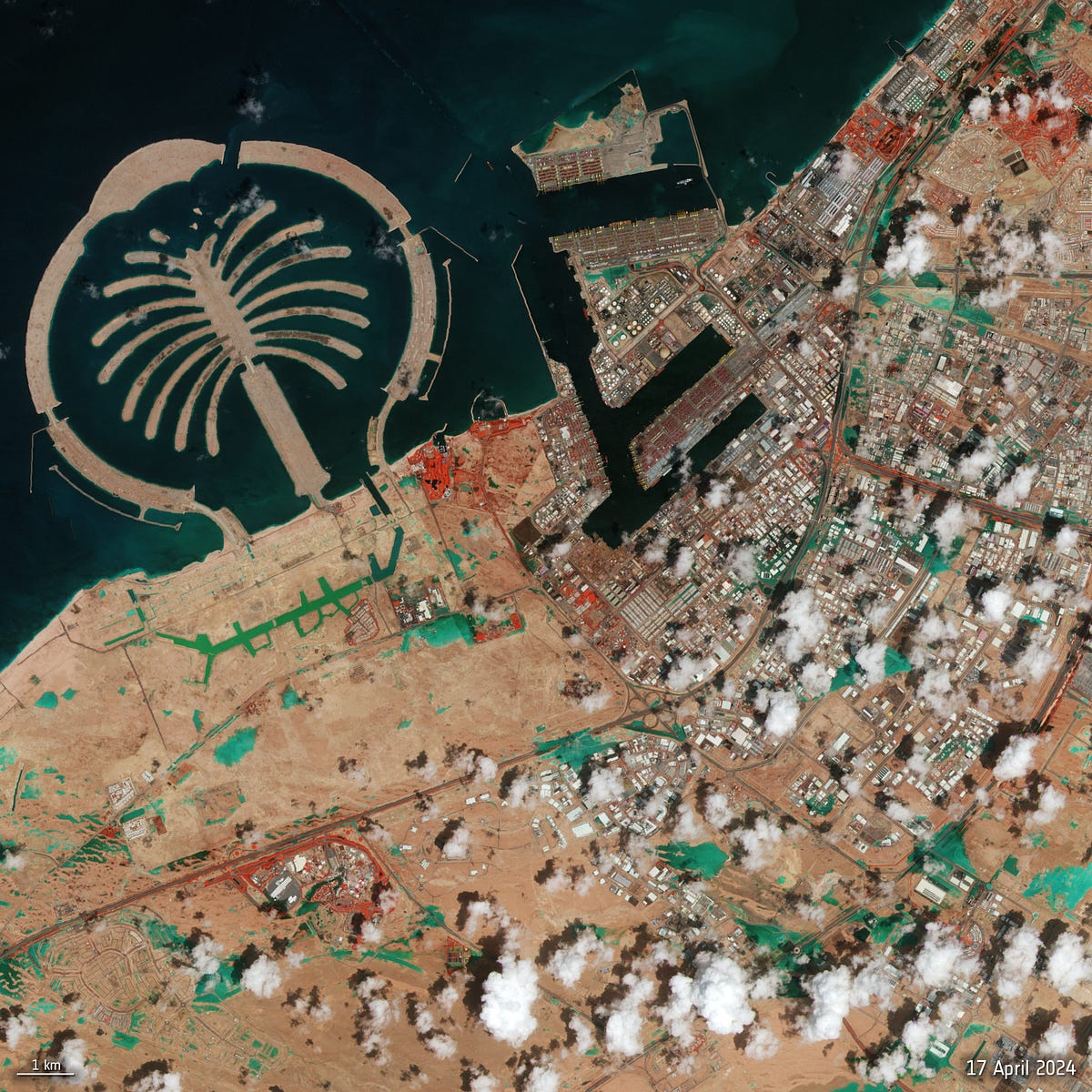Extreme Rainfall Overwhelms Dubai's Arid Climate: Investigating Cloud Seeding and Climate Change Impacts
The content describes an extreme rainfall event that hit Dubai, United Arab Emirates (UAE), in April 2024. Typically, Dubai receives less than 100 mm of rainfall annually, but this event brought over 142 mm of rain in less than two days, more than the city usually gets in a year and a half. The National Centre of Meteorology reported the largest rainfall in 75 years, with 254.8 mm in less than 24 hours in the region of al-Ain.
The heavy rainfall caught the city's infrastructure, designed to cope with heat rather than water, off guard. Roads became flooded, motorists abandoned their vehicles, and homes and businesses suffered damage. Flights at one of the world's busiest airports were severely disrupted, and 20 people reportedly lost their lives.
The article explores the unusual nature of this rainfall event, which is not typical for the arid climate of Dubai. It highlights the perspectives of a meteorologist, Professor Maarten Ambaum, who notes that this part of the world is characterized by long periods without rain and then irregular, heavy rainfall, but even so, this was a very rare event.
The content raises questions about the potential role of cloud seeding, a weather modification technique used in the UAE to increase rainfall, and the possible impacts of climate change on the region's weather patterns.
Customize Summary
Rewrite with AI
Generate Citations
Translate Source
To Another Language
Generate MindMap
from source content
Visit Source
medium.com
Dubai Underwater: Cloud Seeding or Climate Change?
Key Insights Distilled From
by Ricky Lanuss... at medium.com 04-23-2024
https://medium.com/the-new-climate/dubai-underwater-cloud-seeding-or-climate-change-36f968df9e0d
Deeper Inquiries
